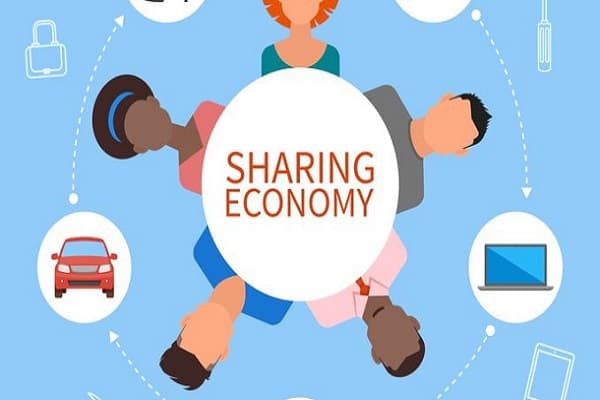In recent years, the sharing economy has emerged as a disruptive force in the business world. This model allows individuals to share resources and services, rather than owning them outright. The rise of companies like Airbnb, Uber, and TaskRabbit has transformed the way we think about traditional business models. In this article, we will explore the impact of the sharing economy on traditional business models and what it means for the future of business.
The Rise of the Sharing Economy

The sharing economy is not a new concept. People have been sharing resources and services for centuries. However, the rise of technology and the internet has made it easier than ever to connect people who want to share resources. Companies like Airbnb and Uber have taken advantage of this trend by creating platforms that allow people to share their homes and cars with others.
One of the biggest advantages of the sharing economy is its ability to provide access to resources that might otherwise be out of reach. For example, someone who cannot afford to buy a car may be able to use a car-sharing service like Zipcar or Car2Go instead. This allows them to have access to a car when they need it without the financial burden of ownership.
The Impact on Traditional Business Models
The rise of the sharing economy has had a significant impact on traditional business models. For example, taxi companies have been disrupted by the arrival of Uber and Lyft. These companies offer a cheaper and more convenient alternative to traditional taxis, which has led to a decline in the taxi industry. Similarly, hotels have been disrupted by the rise of Airbnb. People can now rent out their homes to travelers, which has led to a decline in hotel bookings.
Traditional businesses are also facing increased competition from the sharing economy. For example, a traditional car rental company may now be competing with car-sharing services like Zipcar and Car2Go. This competition has forced traditional businesses to adapt or risk losing market share.
The Future of Business

The sharing economy is here to stay, and it will continue to have an impact on traditional business models. However, this does not mean that traditional businesses will disappear entirely. Instead, traditional businesses will need to adapt to the changing landscape and find ways to compete with the sharing economy.
One way that traditional businesses can compete is by embracing the sharing economy themselves. For example, a hotel chain could create its own platform for people to rent out their homes. This would allow the hotel chain to compete with Airbnb while also offering a unique service to its customers.
Another way that traditional businesses can compete is by focusing on their strengths. For example, a traditional taxi company may be able to offer a higher level of service than Uber or Lyft. By focusing on providing a better customer experience, the taxi company may be able to retain customers and compete with the sharing economy.
The sharing economy has had a significant impact on traditional business models. It has disrupted industries like taxis and hotels and forced traditional businesses to adapt or risk losing market share. However, the sharing economy is not a threat to traditional businesses. Instead, it is an opportunity for businesses to embrace new models of sharing and find ways to compete in a changing landscape.














